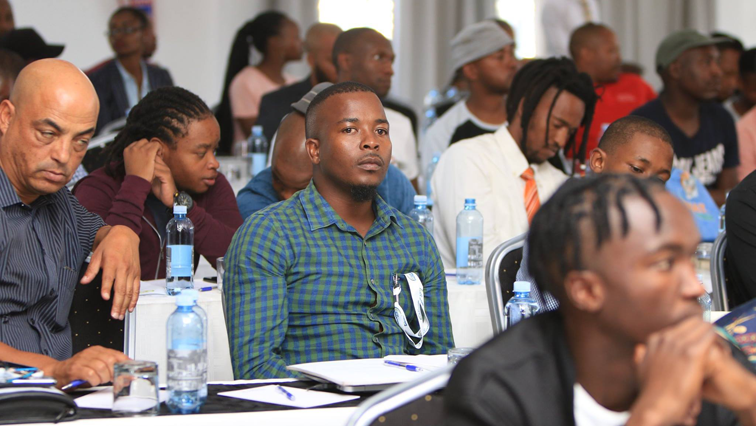Business people from Kenya and South Africa held a joint summit in Nairobi on Monday aimed at seeking investment opportunities in both countries.
On the first day of the summit, weaknesses in the countries’ value addition chains as well non-tariff barriers emerged as top hindrances between Kenya and South Africa.
The Trade and Investment mission comprising of 19 South African companies will also have a similar summit in Tanzania.
On the first of a three day business summit bringing together investors from Kenya and South Africa, officials from Kenya lamented the trade imbalance between the two regional economic powerhouses
The latest data shows exports from Kenya at below 3% of imports from South Africa.
Kenya Angela Ndambuki says: “The total exports to South Africa dropped in 2017 to USD 26.78 million from USD 40.68 million in 2016, while the Kenya imports from South Africa increased to 600 million in 2017 from 488m in 2016.”
This meeting is aimed at bridging the gap.
South African Ambassador Koleka Mqulwana says:”The question that is before us is what are we doing differently and I think we are known as Africans and we are known we are good at implementing thing.”
Lack of value addition was identified as one of the setbacks for Kenya’s low exports to South Africa.
Kenyan businessmen also lamented non-tariff barriers like lengthy paperwork and bureaucracy, as some of the impediments to accessing the South African markets.
Livestock trader in Kenya, Mohammed Abdi Mohammed says: “I have made several trips to South Africa to the permit office in Pretoria trying to get an import licence for camel meat and milk but this date we do not have any joy from that side.”
Not one to give up, Mohammed has devised other ways of accessing the market.
Kenya is hoping to tap into South Africa’s more developed manufacturing sector.
South African Businessman Nhlanhla Maphalala, who has thrice tried to begin businesses in Kenya, and failed due to lack of knowledge on the market says he is ready to start a manufacturing plant in Kenya.
Under Kenyan laws, the government’s duty bound to provide sanitary towels to all school going girls, Nhlanhla says he will tap in the opportunity.
President Uhuru Kenyatta has set increasing manufacturing, affordable housing, universal health care and food security as the four priority pillars of his development agenda during his second and final term.






